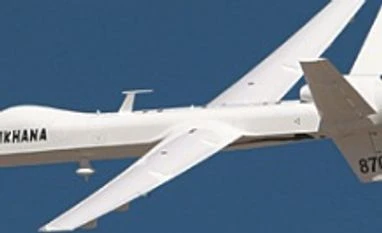Experts and industry leaders from the defence and aerospace sectors discussed technological challenges, regulatory policies and ‘Make in India’ opportunities associated with unmanned systems at the 3rd edition of Unmanned Systems Conference & Exhibition India (USCEI) on Tuesday. The event was organised by Johnnette Technologies Pvt Ltd and Unmanned magazine.
Speaking on the topic of ‘Make in India’, Air Commodore (retd) Ravish Malhotra, co-founder and chief mentor of Dynamatic Technologies Ltd, said, “We built one of our aeronautical manufacturing facilities in the UK because of the unavailability of aeronautical grade materials and components in the country in sufficient quantity. We undertake complex manufacturing in the UK facility, but we assemble in India.” But, he added, “Foreign original equipment manufacturers (OEMs) like Boeing want to come to India because of the pool of talent available in the country. We are second to none in terms of the products we make for these foreign OEMs.”
Dynamatic Technologies Ltd is one of India’s leading aerospace companies. The company supplies aerospace parts and assemblies to Hindustan Aeronautics Limited and companies like Boeing and Airbus. Dynamatic is involved in the manufacture of major airframe structures for Indian Air Force’s Sukhoi 30 MKI fighter aircraft and flap track beams for the Airbus single aisle A-320 family of aircraft.
Speaking to Business Standard, Air Commodore (retd) Malhotra said, “The new defence procurement policy might do away with the policy of selecting the lowest (L1) bidder in any competition. Foreign OEMs look for quality and timely delivery instead of the L1 bidder.” He said that it would perhaps take Indian companies decades to graduate from ‘build to design’ and ‘build to specification’ to competing with international aerospace giants. Replying to a question about the Indian government’s preference to avoid single vendors, he said, “If the process is transparent then there should be no problem with single-vendor scenarios. Because the process is transparent in other countries such issues do not arise there.”
Speaking on the topic of challenges faced by the Indian unmanned systems industry, LDRA India’s Director Shinto Joseph said that industry and academia cooperation was required for growth in the sector. “There is a shortage of expertise in specialised sectors like unmanned systems,” he added. Citing another cause for the sector’s troubles, he said, “India’s safety regulations are lagging. Even if we do build unmanned systems in the country foreign clients might not procure them because of this.”
)